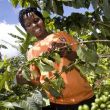MSM ramps up commitment to sustainability & CSR
With sustainability at its core, the unique Dutch business school is preparing MBA students to make a difference.
In 2006, the United Nations Global Compact—the world’s largest corporate sustainability initiative—presented at the UN Global Forum on the topic of Business as an Agent of World Benefit.
The UN body proposed a global engagement platform for academic institutions driving towards sustainable development, and the Principles for Responsible Management Education (PRME) were born. To date, there are over 650 signatories to the PRME worldwide, all forging ahead for ethical development.
One of these signatories is Maastricht School of Management (MSM), whose commitment to a green future spans its academic offering, faculty research, and extra-curricular activities. In the same year as the UN Global Forum, MSM opened a sustainable development center, and it was only a few years later, in 2010, that the school made corporate social responsibility (CSR) a core part of the MBA curriculum.
This kind of school-wide attention to the issue of socially responsible business makes a huge impact in creating sustainably-minded MBAs. For Dr. Jakomijn van Wijk, Associate Professor in Sustainable Business, it’s all about a holistic approach to business education.
“[It’s about] including sustainability in the courses. For example, when you take a finance course, you could also learn about impact investing; and when you study operations management, you could learn about the green supply chain,” she explains.
This is one of the most forward-thinking aspects of the MBA program at MSM for Jakomijn, as she suspects that, in future, all courses will have to have one eye on sustainability. It will no longer be an option for MBAs to prioritize profit over everything else; profit will be inextricably linked with social responsibility.
“That’s what’s relevant in the MBA courses [now]—not just acknowledging that sustainability is the issue, but how you organize your business around it,” Jakomijn says. “How do you strategize for sustainability, how do you collaborate with suppliers, government, civil society and even your competitors on the issue and how do you embed it in your daily operations?”
Another aspect of designing a sustainably-minded MBA curriculum is making sure that it accounts for the way that sustainable development works across cultures. According to Dr. Diederik de Boer, Director International Projects and Consultancies and Assistant Professor Sustainable Business Development at MSM, sustainable business can vary market to market in a way that is useful for MBAs to be aware of.
“If you’re working for the African market for example, it’s much more development-oriented,” he explains. “Whereas, here in Europe, it’s much more environmental and social-consciousness-oriented—what we are doing with our waste, a circular economy, those are the things which are more important [here].”
The faculty at MSM are aware that international priorities within sustainability can vary widely in a way that impacts businesses, and this seeps into their teaching. One course MSM offers its MBA students is a specialization summer school in International Business and Sustainable Development, which takes place over two weeks each July.
Bruna Moura Bruno was a student on this specialization in 2018, having worked for several years in organic produce in Brazil before starting on the MBA at Maastricht School of Management.
Having run her own fruit and vegetable business exporting produce to the Netherlands from Brazil, when Bruna saw that there would be international companies giving talks as part of the specialization course, she was intrigued.
“We had company visits, we had guest lecturers coming to debate and present their initiatives—I thought that was a great opportunity to see in practice how these debates are being dealt with by companies,” Bruna explains.
This merging of corporate with ecological thinking is key to the future of business—and business education—as it is seen at MSM. For Bruna, it’s shown her that financial success and social responsibility don’t have to be mutually exclusive.
“I think it is possible to have both mindsets,” she says. “It’s possible to be profitable, to have a company, to have management skills, but in a more sustainable way and being more socially and environmentally responsible.”
Diederik agrees. “[It is important to] look at the sustainability options and strategy from an international perspective,” he says. “Looking beyond the common markets and knowing what issues are at stake, both in emerging and developed economies, and how to bridge these markets in a more sustainable way.
“At Maastricht School of Management, we have the [ability] to make use of our international networks to do more research, and I think that makes us unique in the business community.”
Article by: Amy Hughes, Business Because. The article is also available on Business Because.
Related news
Looking for a Summer School in Big Data, Entrepreneurship & More? Here’s where you should go!
MBAs network with Executives from KPMG, Mercedes, & Johnson Controls on corporate week 2018
Industry 4.0: Maastricht School of Management takes steps to drive global innovation
This Online MBA program is bringing distance learning into the real world
MSM MBA programs climb in CEO Magazine 2018 Global Tier one MBA rankings
How my MBA in the Netherlands got me a top consulting job in India
This Dutch Business School is sparking new MBA careers in Sustainability and Entrepreneurship
Soft skills, data analytics & how to get an MBA job in the Netherlands
Dutch Business School leads new trend in online learning, data analytics & Industry 4.0
Europe’s Silicon Valley? The Netherlands’ High Tech startup scene means more jobs for MBA students

